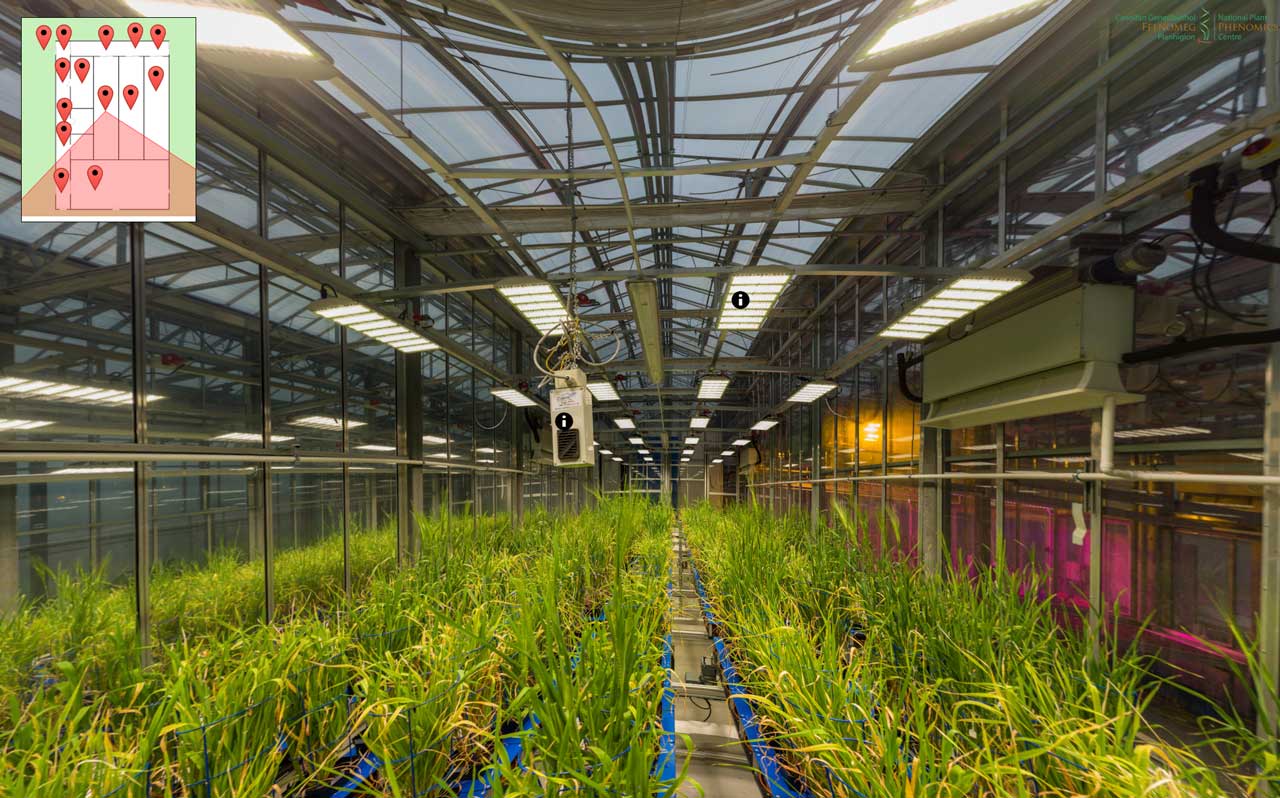Phenotyping across Different Scales
Phenotyping and Different Scales
IBERS hosts the National Plant Phenomics Centre (NPPC), an automated system for non-invasive longitudinal phenotyping for up to 3,400 individual plants. The NPPC allows populations of crops, and other plants, to be assessed by non-invasive visual, infra-red, NIR, fluorescence and laser scan-imaging sensors to record shoot growth and development, water content, photosynthetic activity, temperature and root development (using transparent soil columns). More detailed measurements of photo-physiology can be made on up to 2,000 plants on our small plant platform. NPPC lead (Doonan) has established the capability as a core member of international consortia (e.g., EPPN, EMPHASIS), to deliver phenotyping of crop and model plants. Extensive glasshouse and controlled environment facilities are also available including the Venlo (26 compartments offering control of temperature and day length), and 10 Sanyo and Saxil cabinets/rooms which provide control of day length, temperature and humidity. IBERS crop experiments are also carried out in a custom Soil-Plant-Atmosphere Facility (instrumented rain-out/ lysimeter), which acts as a half-way house between the field and glasshouse. Controlled Environment Agriculture will likely feature in future food supply chains, and new vertical farming research facilities are part of the AberInnovation Campus, to link research with industry needs, and builds on the Plants & Architecture project.
Significant recent investment in imaging equipment through HEFCW has allowed an upgrade to confocal and electron microscopy facilities, and enhanced FTIR capability for high throughput metabolomic phenotyping. The IBERS genetic transformation laboratories and glasshouse facilities enable the manipulation of model and crop plants (e.g., Brachypodium, Lolium, Festuca, Zea and Miscanthus), including through genome editing (CRISPR/Cas), and are used for the modification of traits such as cell walls, self-incompatibility and recombination. The Analytical Chemistryunit at IBERS holds ISO 17025 accreditation in 19 industry standard techniques of forage and nutrient analyses and processes internal and external samples. The DNA sequencing laboratory represents a local capability for smaller projects especially where a faster turnaround is needed using Illumina MiSeq for SNP, metagenomics and amplicon sequencing. The metabolomics facilityat IBERS include high resolution mass spectrometry and chromatography techniques (GC-MS-MS, GC-tof-MS, LC-MS) for untargeted metabolomics, chemical and structural analysis, proteomics and cell profiling.
360º Virtual Walkthrough
Explore our facilities yourself with our 360º Virtual Walkthrough. Click the image below to get started.

